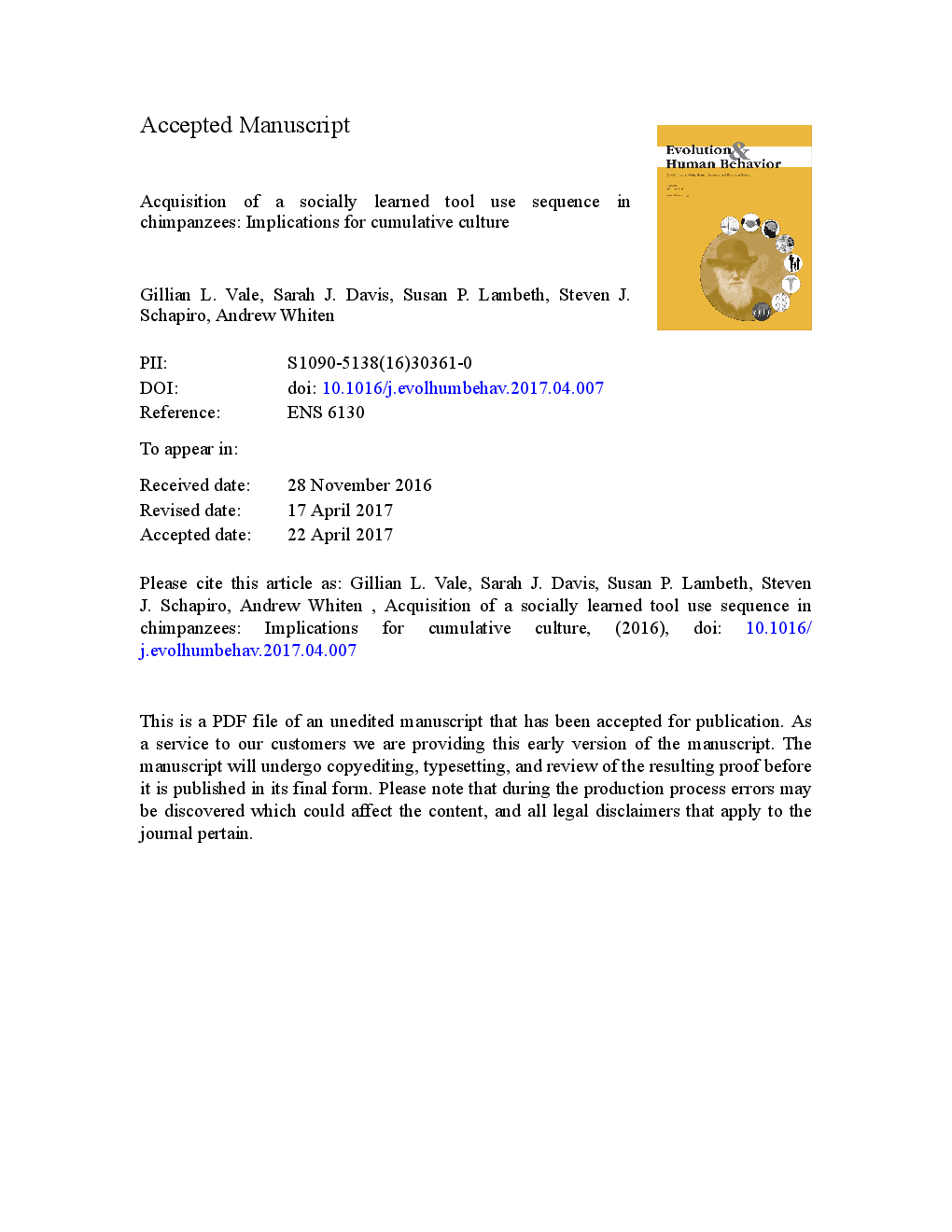ترجمه فارسی عنوان مقاله
به دست آوردن یک ابزار اجتماعی آموخته استفاده از توالی در شامپانزه: تاثیرات برای فرهنگ تجمعی
عنوان انگلیسی
Acquisition of a socially learned tool use sequence in chimpanzees: Implications for cumulative culture
| کد مقاله | سال انتشار | تعداد صفحات مقاله انگلیسی |
|---|---|---|
| 131137 | 2017 | 25 صفحه PDF |
منبع

Publisher : Elsevier - Science Direct (الزویر - ساینس دایرکت)
Journal : Evolution and Human Behavior, Volume 38, Issue 5, September 2017, Pages 635-644
ترجمه کلمات کلیدی
فرهنگ، فرهنگ تجمعی، تکامل فرهنگی، یادگیری اجتماعی، راتچینگ،
کلمات کلیدی انگلیسی
Culture; Cumulative culture; Cultural evolution; Social learning; Ratcheting;

